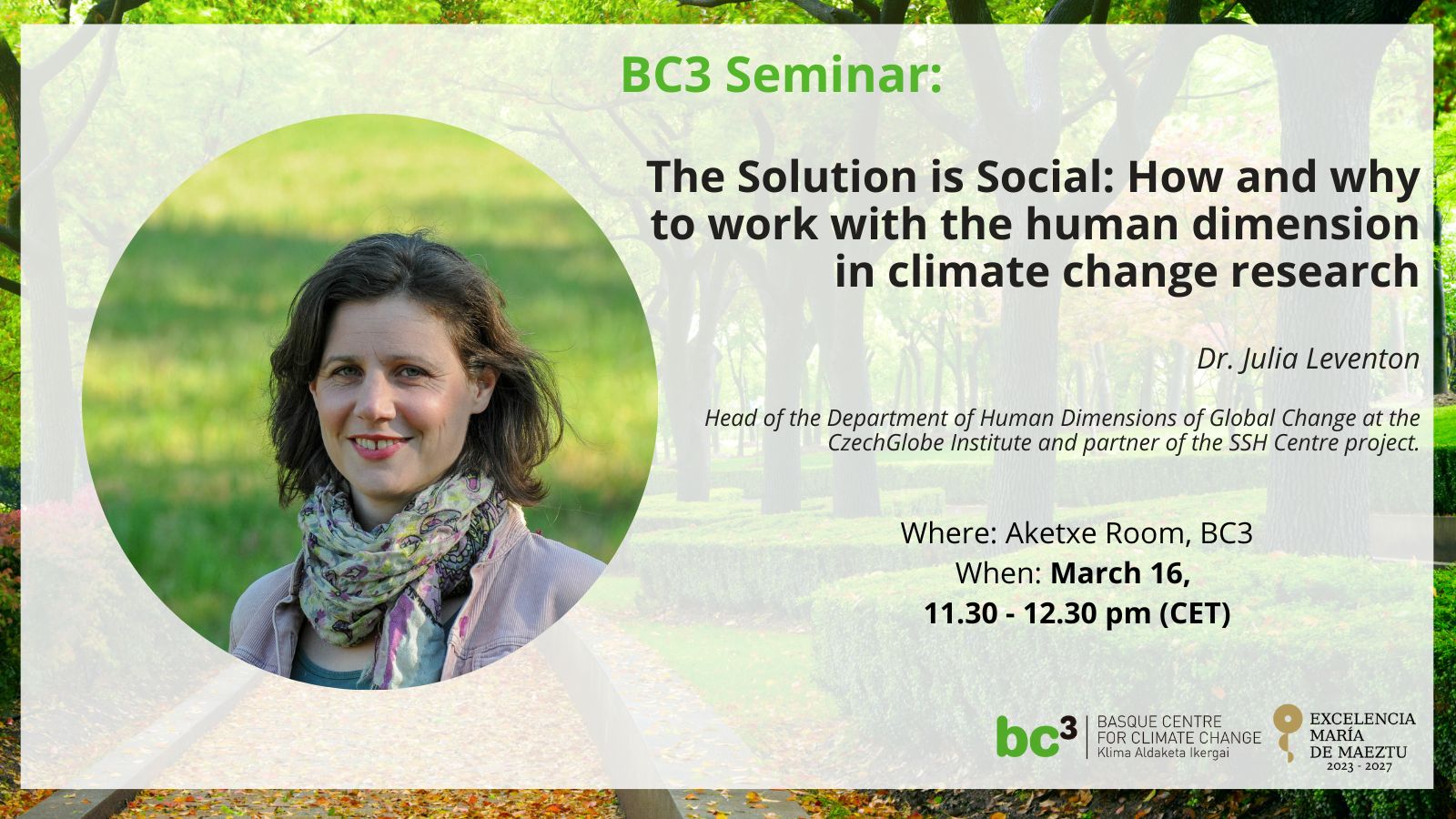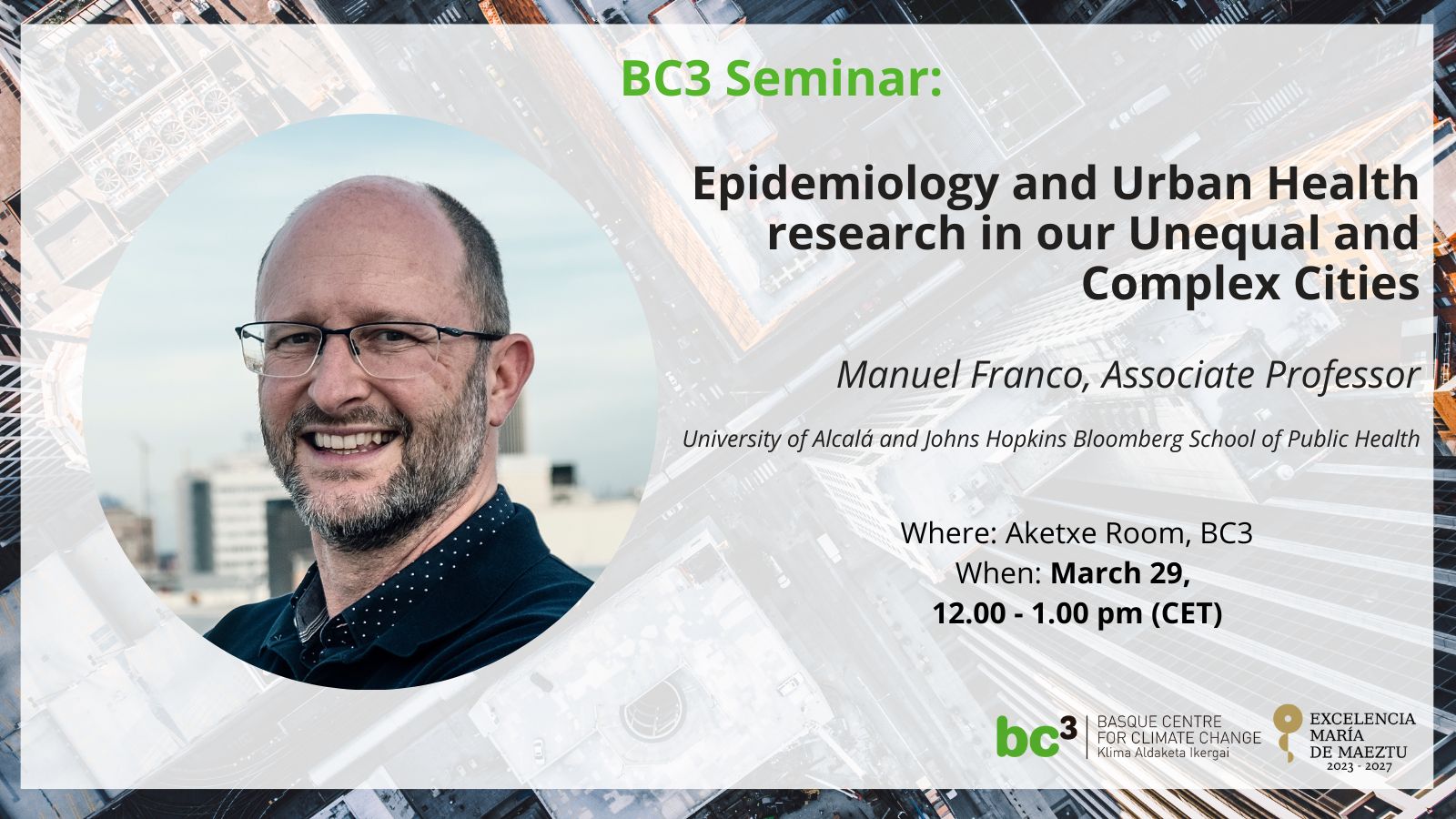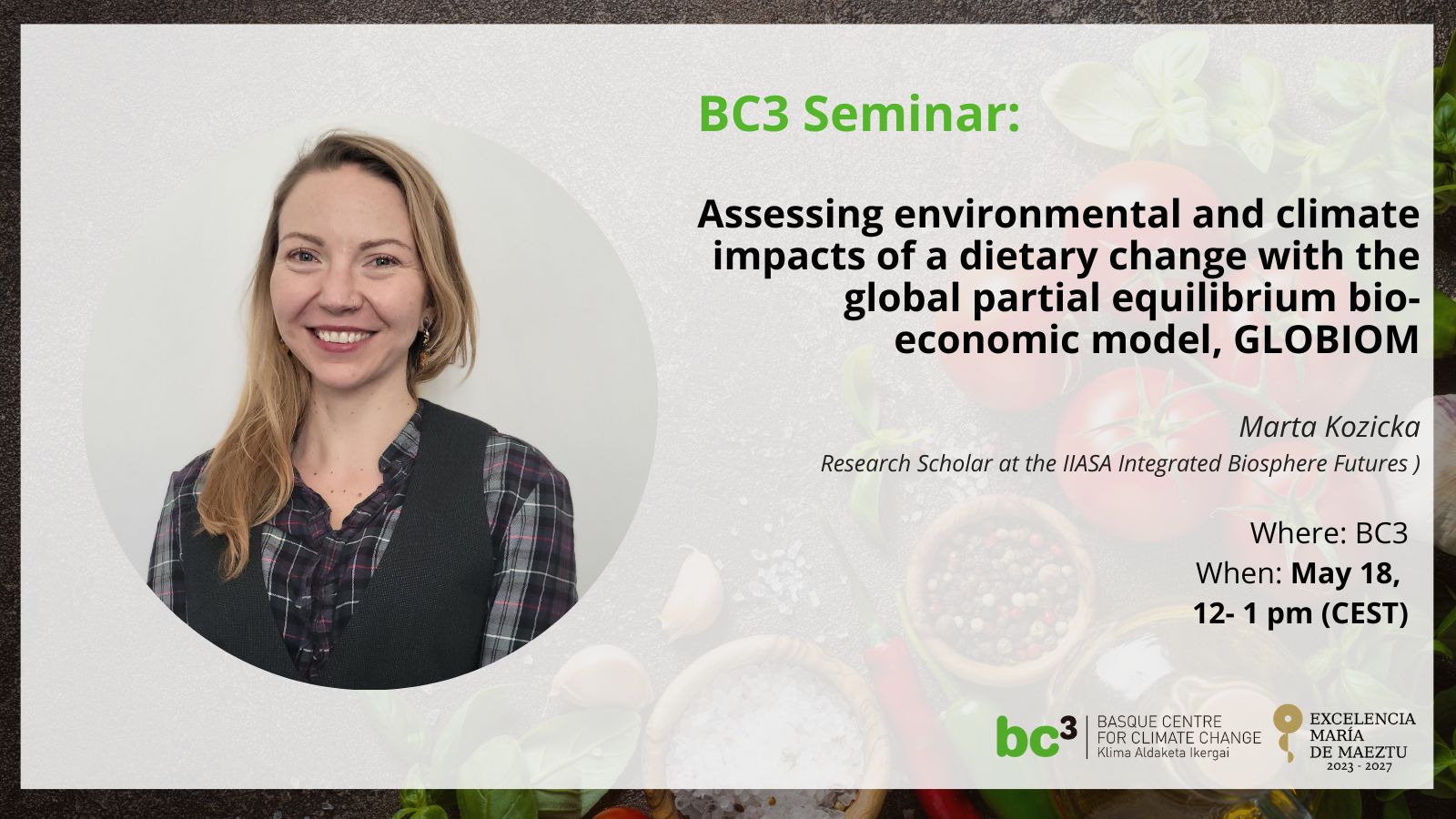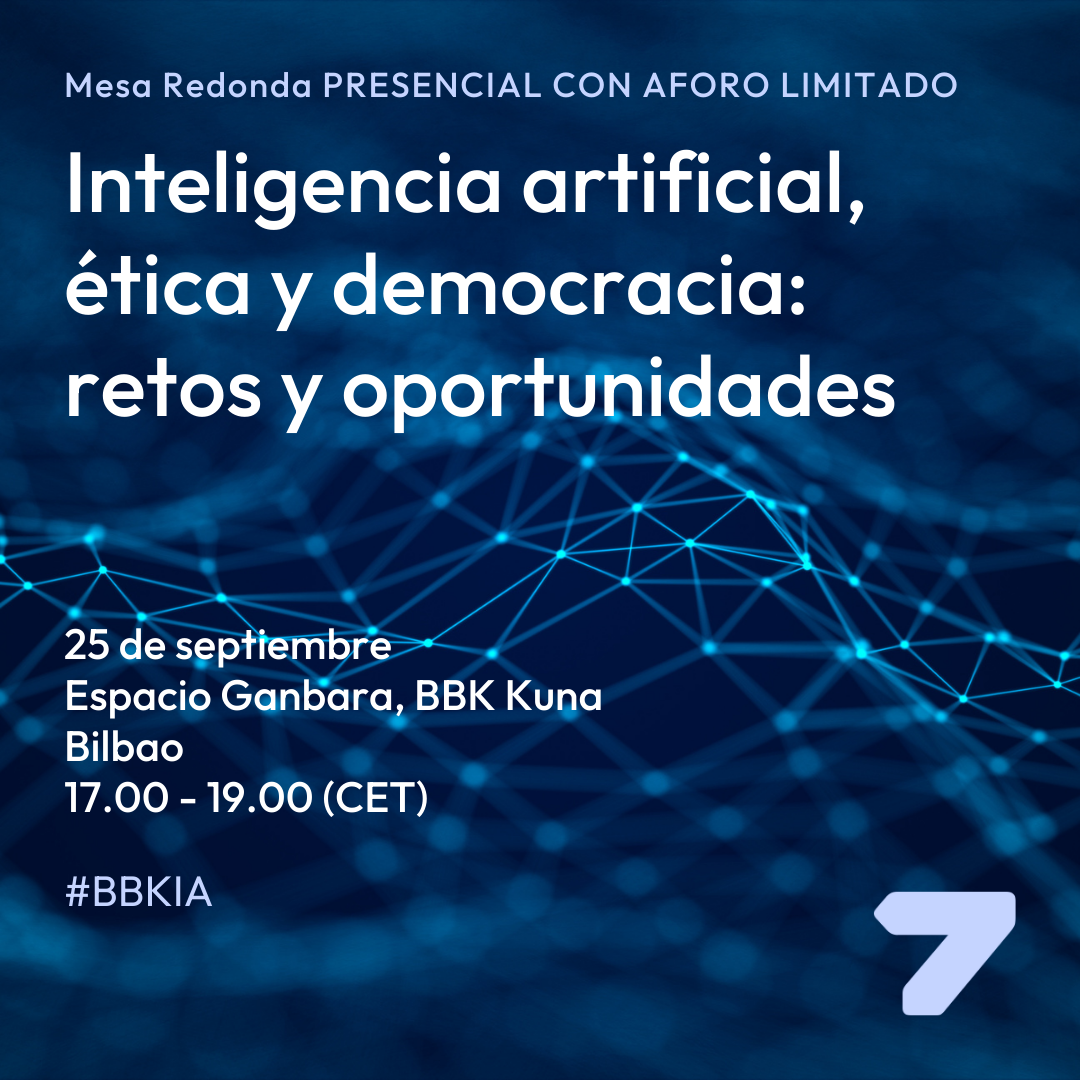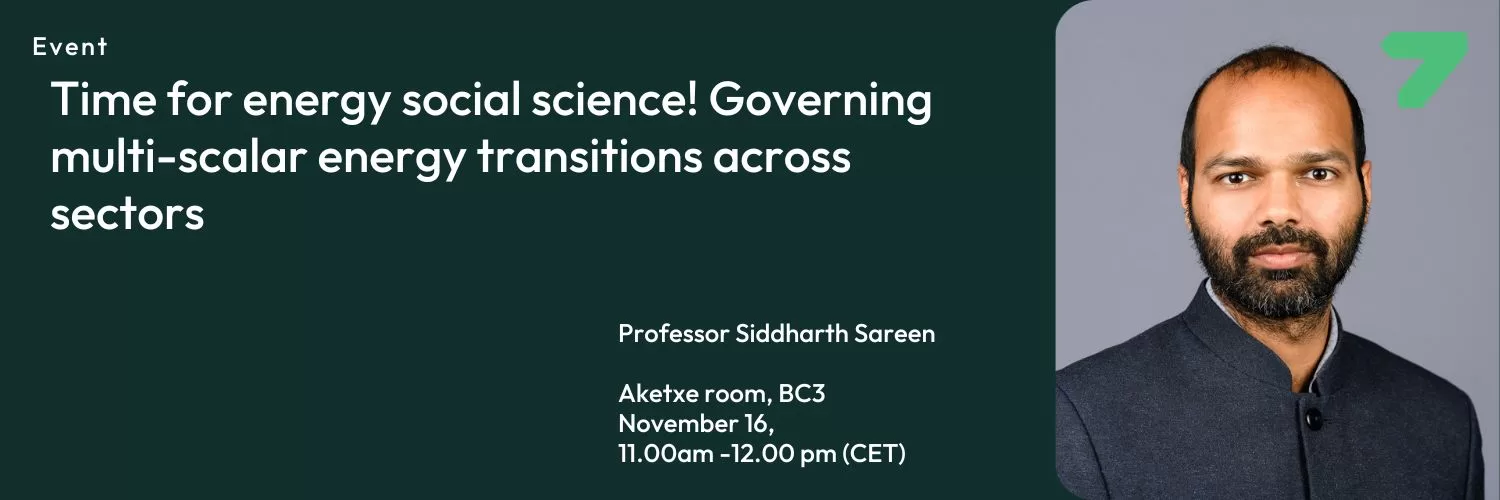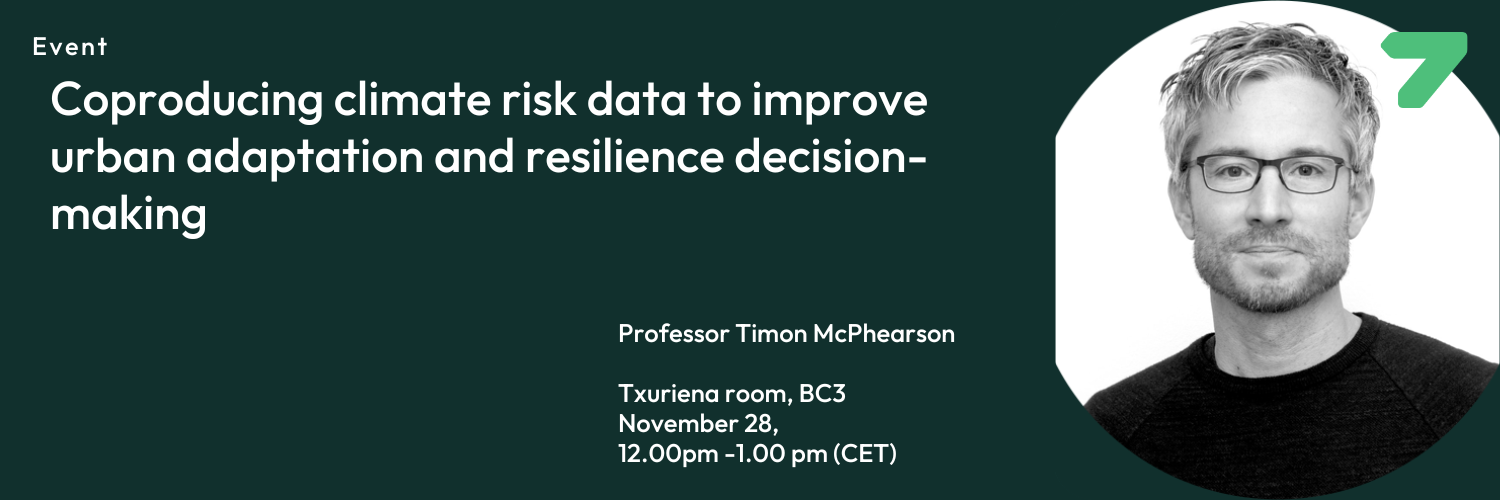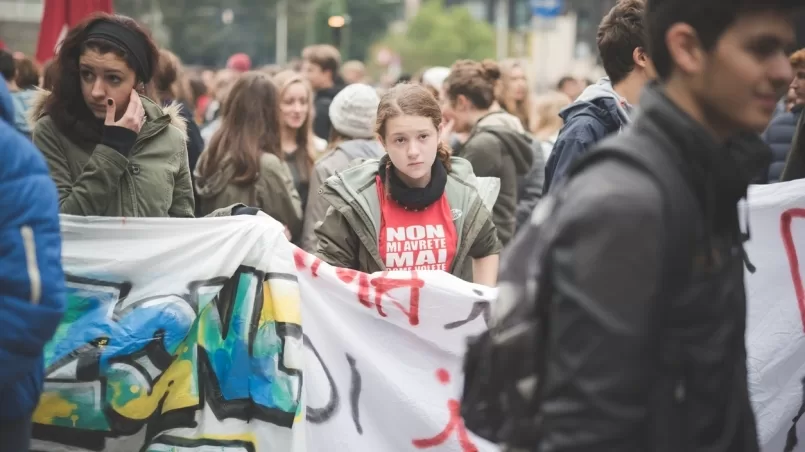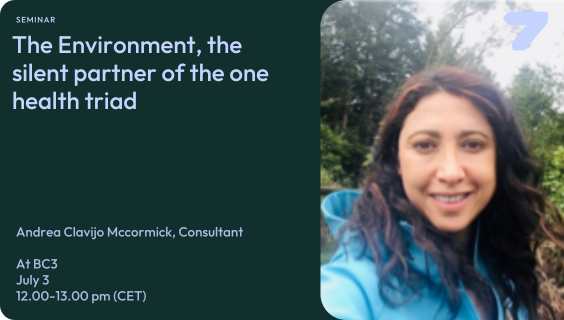Seminars
Tree species mixing as a strategy for adaptation to climate change
BC3-Basque Centre for Climate Change Sede Building 1, 1st floor, Scientific Park of the University of the Basque Country, Leioa, Bizkaia, SpainForest ecosystems are more and more threaten by the increasing biotic and abiotic disturbances triggered by global change. Adapting forest systems to climate change while maintaining their mitigation capacity is the main challenge to achieve a climate smart forestry.
The Solution is Social: How and why to work with the human dimension in climate change research
BC3-Basque Centre for Climate Change Sede Building 1, 1st floor, Scientific Park of the University of the Basque Country, Leioa, Bizkaia, SpainClimate change is caused by human activities, the human dimension is an obvious place to look to find solutions. Yet between 1990 and 2018, social science research received only 0.12% of global research funding into climate change (Overland and Sovacool, 2020). Where they are supported, social sciences and humanities are often placed in service to the research and practice agendas of physical sciences (Kania and Bucksch, 2020). Such under-representation is perpetuated, and carried into the policy and practice arena (Royston and Foulds, 2020), for example through IPCC (Lahsen and Turnhout, 2021).
Epidemiology and Urban Health research in our Unequal and Complex Cities
BC3-Basque Centre for Climate Change Sede Building 1, 1st floor, Scientific Park of the University of the Basque Country, Leioa, Bizkaia, SpainUrban health research has greatly improved in quality, quantity, and depth over the past 20 years. Just in the last decade, we have seen a large increase in publications, scientific journals, conferences, books, and courses. This growth highlights the fact that there is a large and growing amount of knowledge that could be translated into policies to improve population health and reduce health inequities in cities worldwide.
Transformation Labs, socio-ecological innovation and imagination
BC3-Basque Centre for Climate Change Sede Building 1, 1st floor, Scientific Park of the University of the Basque Country, Leioa, Bizkaia, SpainTransformation Laboratories or T-Labs for short are participatory and innovation processes to foster social-ecological changes towards more sustainable pathways. The idea of transformations is a response to incremental adaptation strategies that aim at maintaining business-as-usual. In my presentation I will talk about my experience as part of the T-Lab project in the urban wetland of Xochimilco, in México city.
Assessing environmental and climate impacts of a dietary change with the global partial equilibrium bio-economic model, GLOBIOM
BC3-Basque Centre for Climate Change Sede Building 1, 1st floor, Scientific Park of the University of the Basque Country, Leioa, Bizkaia, SpainGLobal BIOsphere Management model (GLOBIOM, Havlík et al. 2014), developed at IIASA is a global economic land use model covering the sectors of agriculture, forestry and bioenergy. GLOBIOM can be used to explore various trade-offs and synergies around land use, ecosystem services and socio-economic objectives.
Agriculture and land use (AgLU) in GCAM: Recent updates and future prospects
BC3-Basque Centre for Climate Change Sede Building 1, 1st floor, Scientific Park of the University of the Basque Country, Leioa, Bizkaia, SpainGlobal economic and integrated assessment models are useful for understanding human-earth system dynamics under climate change. The agriculture and land use (AgLU) system is an essential component of integrated assessment, as it connects to energy, macroeconomics, and GHG emissions, and is relevant to key areas such as food security, biodiversity, and land-based mitigation measures.
Mesa redonda de BC3 sobre IA, ética y democracia
El proyecto ARIES de BC3 organiza una mesa redonda presencial el 25 de septiembre en Bilbao bajo el título “Inteligencia artificial, ética y democracia: retos y oportunidades” con la participación del Instituto de Gobernanza Democrática (Globernance), el Basque Artificial Intelligence Centre (BAIC) e Ikerbasque.
Time for energy social science! Governing multi-scalar energy transitions across sectors
BC3-Basque Centre for Climate Change Sede Building 1, 1st floor, Scientific Park of the University of the Basque Country, Leioa, Bizkaia, SpainEnergy transitions are underway everywhere simultaneously, or so one wants to think. They are in fact resisted vigorously, reshaped surreptitiously, and stripped of meaning altogether upon closer examination in unfortunately many circumstances. The urgent need for rapid action imbues large powerful actors with deep pockets with greater ability to wrest control of processes labelled energy transitions, while more inclusive, democratic, locally situated approaches cause barely an occasional flutter if measured in capital investments and gigawatt hours of clean energy production and fossil fuel displacement.
Coproducing climate risk data to improve urban adaptation and resilience decision-making
BC3-Basque Centre for Climate Change Sede Building 1, 1st floor, Scientific Park of the University of the Basque Country, Leioa, Bizkaia, SpainWe live on an urban planet, one that will become even more urban in coming decades. The polycrisis of biodiversity loss and climate change is interacting dynamically with urbanization creating a locus of impact both by, and on, cities and urbanized regions.
Co-producing adaptation knowledge for improved decision support
BC3-Basque Centre for Climate Change Sede Building 1, 1st floor, Scientific Park of the University of the Basque Country, Leioa, Bizkaia, SpainHow to best connect adaptation science and practice? In January the Stockholm Environment Institute (SEI) will host a session on insights and lessons learned related to good practice co-produced climate services for improved adaptation planning and decision-making.


